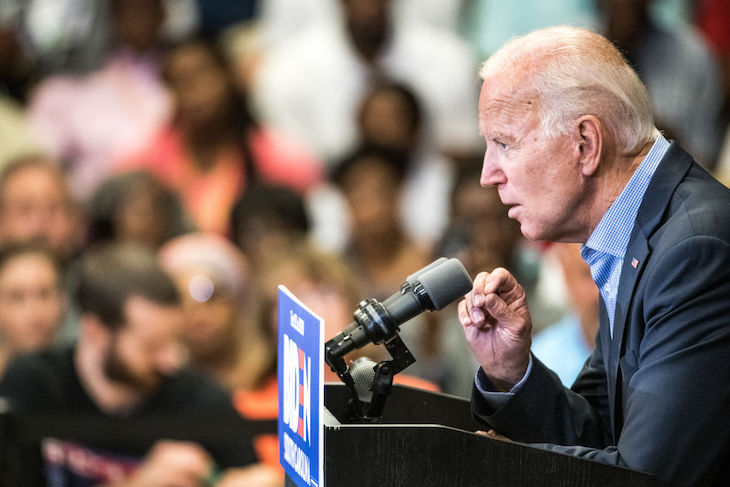It was Labor Day in the United States yesterday, which can only mean one thing—now that the barbecues and swimming at the beach are over, Americans will be tuning in to the 2020 Democratic presidential primary a lot more often. The candidates are entering a fall campaign season that could prove pivotal for their operations, in both good ways and bad.
In terms of polling, the numbers have been quite static. Former Vice President Joe Biden is still the man to beat, having sustained a double-digit lead over his competitors throughout the dog days of summer despite numerous mistakes that would have been fatal to any other candidate. Biden, whose first run for the presidency more than 30 years ago bottomed after he was found borrowing words from the former Labour leader Neil Kinnock during a speech, is a master of the gaffe and self-inflicted wound. There have been more than a few over the last several months, from his fond recollection of working with segregationist senators in the 1970s to his rocky performance during the first presidential debate in June. While Biden has been eating ice cream cones and shaking hands with voters, he has also been struggling with how to rectify his opposition to Donald Trump’s immigration policies with the reality of once being the second-in-command of an administration that deported hundreds of thousands of illegal immigrants.
The VP remains stubbornly resistant when he makes mistakes; instead of apologising, he doubles down. Indeed, just last week, Biden reportedly took three heroic war stories and mashed them together as if he were a director on a movie set. When he was called out for it, Biden grimaced: ‘I don’t understand what they’re talking about, but the central point is it was absolutely accurate what I said.’ These kinds of denials are ordinary for anyone who has followed Biden’s near half-century of political life, but to the loud progressive base who wants a new generation to take over the Democratic Party, it’s more evidence he’s an old, out-of-touch party aristocrat who ought to be spending his golden years sipping ice tea on the front porch.
California Sen. Kamala Harris, who had so much promise earlier in the summer when she took on Biden during the first debate, is meanwhile going through a rough patch. Her double-digit support is now back in the single-digits. Maya Harris, her sister and political consigliere, had to jump on the phone last week and soothe the worries of donors when CNN released a poll showing a sad 5 per cent for the former prosecutor. Why Harris is in bad shape is a little bit of a mystery, but a good part of the reason probably has to do with her meandering answers on health care reform and her inability to attract attention away from the likes of Massachusetts San. Elizabeth Warren, a woman who has a plan for every policy problem under the sun. Whereas Warren sounds authentic, Harris appears like a typical politician who tries to be too many things to too many people. Fair or not, this is the overriding perception so far. And if Harris can’t escape it, she will have to endure another few years in the boring Senate chamber.
As the weeks go by, Americans can expect more candidates to drop out of the race. Money will eventually dry up for those like New York City Mayor Bill de Blasio, former Maryland Congressman John Delaney, and Ohio Congressman Tim Ryan who are either running vanity campaigns or are delusional enough to think they can win delegates. The pen will be culled, and culled rapidly. By the time Democrats go to the polls in Iowa, the field may have settled on four or five top candidates.
For the average Democrat, watching the wannabes drop out is both a blessing and a curse — a blessing because the discussion will start to get serious; a curse because the infighting within the party is certain to get worse.
Through it all, Trump will be sitting in the White House poking fun at the candidates, calling the Democratic Party a club for socialists, and anxiously awaiting who his competitor will be a year from today.






Comments